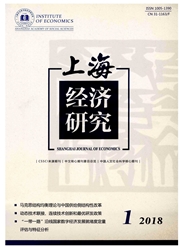

 中文摘要:
中文摘要:
制度环境、资源禀赋同我国OFDI存在什么样的内在联系,已然成为摆在中国学者及政策制定者面前需要进行深入研究的问题。该文基于2000--2013年16个OECD国家面板数据,运用门槛回归模型,得到了以下结论:(1)三大制度环境指标均对我国OFDI产生显著的负向影响;(2)东道国资源禀赋对三大风险指数的调节作用能够显著地促进我国OFDI;(3)在门槛值之前,东道国制度环境越差,其资源禀赋越能刺激我国OFDI,但是一旦跨过这个门槛值,制度环境相对较好国家的资源禀赋又反而抑制我国OFDI。以上这些发现不仅为全面理解制度环境、资源禀赋与我国对外直接投资之间的内在关系提供了经验证据,也为中国对外直接投资政策的调整提供了具有现实意义的参考依据。
 英文摘要:
英文摘要:
It has become a problem faced by scholars and policymakers that what kind of internal connection the institutional environment, resource endowment and China's OFDI has. This article uses the threshold regression model and analyzes the panel data of 16 OECD countries from the year 2000 to 2013. We come to the following conclusions: (1) The three indexes of institutional environment have a significant negative impact on our country's OFDI; (2) The adjustment role of the resource endowment towards the three main risk indexes can promote the OFDI significantly; (3) Below the threshold value, the worse the institutional environment of host country is, the more stimulation to China's OFDI will be caused by its resource endowment. All the findings above provide not only empirical evidence for a general understanding of the internal connection between institutional environment, resource endowment and China's OFDI, but also a meaningful reference for the adjustment of China's OFDI policy.
 同期刊论文项目
同期刊论文项目
 同项目期刊论文
同项目期刊论文
 期刊信息
期刊信息
